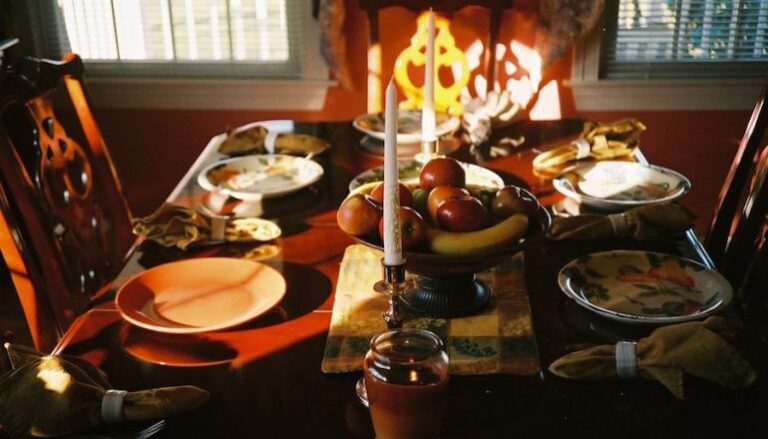The 2016 Presidential Election Was Predicted by a 1970’s Absurdist Novel
A middle-aged white man steps onto the political stage in a fancy, expensive suit. He makes speeches that are simple and direct, low on facts but high on rousing rhetoric. He touts an inanimate object as the savior of the economy and a metaphor for the American way of life. He speaks in non-sequiturs and bizarre analogies, which only inspires further praise for his relatability and lack of pretension. He experiences a meteoric rise in politics, despite possessing little to no political knowledge or conviction, and is eventually considered a viable candidate for President of the United States.
This is a description of Donald Trump’s presidential campaign, of course; but funnily enough, it’s also the plot of a 1970’s absurdist novella—Being There by Jerzy Kosinski (later adapted into a film starring Peter Sellers). The political satire follows a man—aptly named “Chance”—whose only life experience consists of gardening and watching television, until the day he inherits expensive suits and is immediately assumed to be a successful man with financial and political acumen. Through a series of absurd misunderstandings made believable by white male privilege, he becomes a sought-after commentator on the economy and a widely favored political candidate.
There is no comparison to be made between Donald Trump and Chance the gardener as human beings, since Trump is not an innocent pawn with no intention to power-grab. But Being There‘s absurdist portrait of the American people’s values reflects real life with unsettling accuracy. The suit-clad Chance is hailed as a financial genius despite having zero experience handling money, while the billionaire Trump is hailed as a self-made businessman despite many business failures and a $250 million inheritance. To cover up his lack of economic and political knowledge, Chance makes simple statements about his garden that are mistaken for profound metaphors. Donald Trump, for his part, has made his border wall the centerpiece of his (very successful) campaign to the point that it has inspired Wall cosplay, and has repeated the mantra “Make America Great Again” so many times, he is reportedly convinced that that will be his only job as President.
Just as Chance had no knowledge of finances or politics as he entered the national stage, Trump lacks the most basic knowledge about the issues facing our country, like the difference between Hamas and Hezbollah. But for both men, their appeal to the public is directly related to this lack of education. Chance is praised for his “down-to-earth philosophy” and characterized as “not one of those phony idealists, or IBM-ized technocrats.” (Or, in 2016 terms, he’s not an “SJW,” or a Silicon Valley tastemaker who could be played by Jesse Eisenberg in a movie.) Similarly, Trump supporters cite Trump’s lack of political correctness and ability to “speak his mind” as his primary draws, in contrast to seasoned political animals and “elitists” like Hillary Clinton.
Being There functions as a simple absurdist comedy, but also a biting commentary on our political process, and particularly the qualities we value in political candidates. By requiring candidates to be “relatable” or “the kind of guy you could get a beer with” (sexist language intended), rather than qualified or experienced, we turn candidates into blank slates on which the public writes their own values and projects their own dreams.
In the same vein, the candidates’ statements become the verbal version of a Rorschach test. When Chance tells the President that “growth has its season” in a garden, the President assumes that he is optimistically predicting a resurgence in the economy. And in one hilarious episode, Chance tells the press that he doesn’t read any newspapers, but only watches TV, and the stunned reporters assume that he believes television news is more objective.
“’Thank you, Mr Gardiner,’ [one reporter] said, ‘for what is probably the most honest admission to come from a public figure in recent years. Few men in public life have had the courage not to read newspapers. None have had the guts to admit it!’”
Kosinski intended this episode to be satirical, but unfortunately, this stubborn insistence that knowledge is irrelevant—even disadvantageous—is all-too-familiar in the current climate. When Carly Fiorina correctly identified the difference between Hamas and Hezbollah, and claimed it was “important” for Trump to understand foreign affairs, many defended Trump’s ignorance with as much zeal as this commenter on Breitbart:
“The superior Fiorina. She knows everything while the average American does not know the difference between Hamas and other murdering groups and do not give a rat’s azz since they are Israel’s problem.
The average American knows the threat we have are illegals, national debt, liberal Republicans and Democrats. This Fiorina does not know because she is liberal Republican.”
In the last year, many have described this election season as a “joke,” the “last season of America [where] the writers are just going crazy,” and “America’s Shit Salad Fuckstravaganza.” But in the context of Being There, we might have to add one more qualifier to that list: the realization of a prescient 1970’s dystopian parody.


